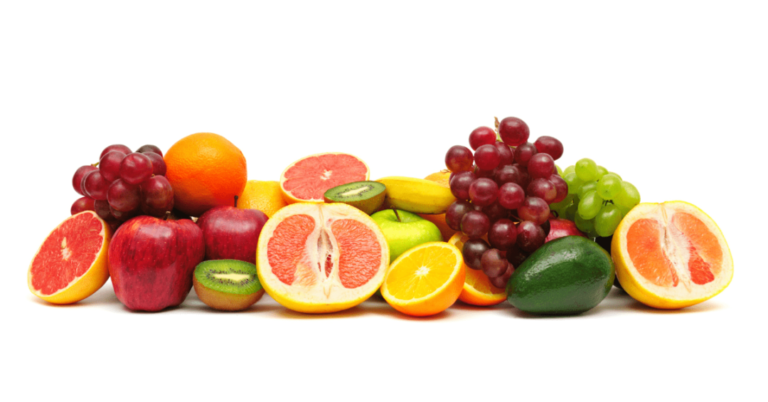The Power of Vegetables: Benefits of Vegetable Chart
Some links on this page are affiliate links (including Amazon Associate links) which means that, if you choose to make a purchase, we may earn a small commission at no extra cost to you. We greatly appreciate your support!
In the pursuit of a healthier lifestyle, incorporating a diverse array of vegetables into your diet is not just about filling your plate with vibrant colors; it’s also a strategy for enhancing overall well-being and achieving weight loss goals. In this article, we will delve into the benefits of various vegetable categories, exploring how these nutrient-packed gems contribute to health and aid in weight loss. Additionally, we’ll address the challenges of meeting daily nutritional requirements solely through diet and discuss how supplements can play a role in bridging the nutritional gap.
Benefits of Vegetable Chart
Leafy Greens
Leafy greens such as spinach, kale, and collard greens are invaluable allies in your journey toward better health and weight management. Packed with essential vitamins, minerals, and antioxidants, these greens promote optimal immune function, boost energy levels, and contribute to overall well-being. Additionally, their high fiber content aids in digestion, supporting a healthy gut, which is crucial for nutrient absorption and maintaining a balanced weight.
- Spinach: Spinach, with its low calorie and high nutrient content, is a weight-loss-friendly vegetable. Rich in fiber, it promotes satiety, helping you feel full and satisfied with fewer calories. The abundance of vitamins and minerals supports overall health, contributing to a well-rounded weight loss plan.
- Kale: Kale’s high fiber and water content make it a perfect addition to meals for those looking to shed pounds. Its dense nutrient profile provides essential vitamins and minerals without packing on the calories. The fiber also aids digestion, promoting a healthy gut, which is crucial for overall well-being.
- Collard Greens: Collard greens, with their combination of fiber, vitamins, and minerals, support weight loss by providing essential nutrients while keeping calorie intake in check. The fiber content aids in digestion and helps maintain stable blood sugar levels, preventing energy crashes that can lead to unhealthy snacking.
Cruciferous Vegetables
Broccoli, cauliflower, and Brussels sprouts, belonging to the cruciferous family, are not only potent cancer-fighters but also valuable allies in weight management. These vegetables contain compounds like sulforaphane, which has been linked to cancer prevention. Moreover, their high fiber content aids in satiety, helping to control calorie intake and support weight loss efforts while providing a rich array of vitamins and minerals essential for overall health.
- Broccoli: Broccoli’s fiber and water content contribute to a feeling of fullness, making it an excellent choice for those aiming to control their calorie intake. Its wealth of nutrients supports overall health and provides energy for physical activity, an essential component of any weight loss plan.
- Cauliflower: Cauliflower’s versatility in low-carb recipes makes it a favorite among those following various diets. It’s low in calories, high in fiber, and rich in antioxidants, offering a satisfying and nutritious option for weight-conscious individuals.
- Brussels Sprouts: Brussels sprouts provide a combination of fiber, vitamins, and antioxidants that support weight loss and overall health. The fiber content aids in digestion, while the antioxidants combat inflammation, a factor linked to weight gain.
Root Vegetables
Root vegetables like carrots, sweet potatoes, and beets offer a sweet and nutritious way to support your weight loss journey. Beyond their delightful flavors, these vegetables are rich in fiber, essential vitamins, and antioxidants, promoting a feeling of fullness and aiding digestion, thereby contributing to a balanced and sustainable approach to weight management.
- Carrots: Carrots’ natural sweetness makes them a satisfying alternative to sugary snacks, helping to curb cravings. Packed with vitamins and fiber, they contribute to overall health while being a tasty, low-calorie option.
- Sweet Potatoes: Sweet potatoes, with their rich beta-carotene content, offer a nutrient-dense option for those seeking weight loss. The fiber content promotes a feeling of fullness, while the complex carbohydrates provide sustained energy for workouts.
- Beets: Beets are low in calories and high in nutrients, making them an excellent addition to a weight-loss diet. The natural nitrates in beets may also enhance exercise performance, supporting physical activity as part of a weight loss plan.
Allium Vegetables
Onions, garlic, and leeks not only add flavor to dishes but also contribute to weight management through their unique nutritional profiles. These allium vegetables contain allicin, a compound with potential metabolism-boosting properties, and their anti-inflammatory properties may support overall health, providing a holistic approach to weight management.
- Onions: Onions’ low calorie and high flavor profile make them a great addition to meals for those watching their weight. Additionally, the anti-inflammatory properties may support overall well-being, contributing to a healthy weight loss journey.
- Garlic: Garlic’s potential to aid weight loss lies in its ability to regulate blood sugar and insulin levels. By doing so, it helps prevent energy crashes and the subsequent cravings for sugary snacks.
- Leeks: Leeks’ mild flavor and nutrient content make them a versatile addition to a variety of dishes. The combination of vitamins and minerals supports overall health, contributing to a holistic weight loss approach.
Nightshade Vegetables
Bell peppers, tomatoes, and eggplant, members of the nightshade family, not only add color to your plate but also offer weight management benefits. Packed with vitamins, minerals, and antioxidants, these vegetables support metabolic health and provide a nutrient-dense, low-calorie option for those looking to maintain a healthy weight while enjoying delicious and colorful meals.
- Bell Peppers: Bell peppers, with their low-calorie and high-nutrient content, are an excellent choice for those looking to lose weight. The variety of colors indicates a diverse range of antioxidants, supporting overall health.
- Tomatoes: Tomatoes, rich in vitamins and antioxidants, can aid in weight loss through their potential to reduce inflammation and support metabolic health. Cooking tomatoes enhances the absorption of lycopene, an antioxidant linked to various health benefits.
- Eggplant: Eggplant’s low calorie and high fiber content make it a weight-loss-friendly vegetable. Its versatility in recipes provides a satisfying option for those seeking a nutritious yet low-calorie meal.
Legume Vegetables
Green beans, peas, and lentils, as legumes, offer plant-based protein and fiber, contributing to weight loss and overall well-being. The combination of protein and fiber in legumes promotes satiety, helping control appetite and reduce overall calorie intake, while their nutrient-rich profile provides essential vitamins and minerals for a balanced and nourishing diet.
- Green Beans: Green beans’ low calorie and high fiber content make them a valuable addition to weight loss diets. The fiber promotes a feeling of fullness, helping to control overall calorie intake.
- Peas: Peas, with their combination of protein and fiber, contribute to satiety and support weight loss. They are also rich in vitamins and minerals, adding nutritional value to meals.
- Lentils: Lentils, as a protein and fiber-rich legume, offer a satisfying option for those seeking weight loss. The combination of nutrients supports energy levels and provides essential building blocks for a healthy body.
Starchy Vegetables
Corn, butternut squash, and pumpkin, while starchy, can still be included in a weight-conscious diet when consumed in moderation. These starchy vegetables offer a valuable source of complex carbohydrates, providing sustained energy for physical activity, and their rich fiber content contributes to satiety, supporting portion control and overall weight management.
- Corn: Corn, when eaten in moderation, can be part of a weight loss plan. Its fiber content aids digestion, and it provides a source of energy for physical activity.
- Butternut Squash: Butternut squash, with its rich beta-carotene content, offers a nutrient-dense option for those aiming to lose weight. The fiber content supports satiety, making it a satisfying addition to meals.
- Pumpkin: Pumpkin’s low calorie and high nutrient content make it a weight-loss-friendly vegetable. It provides vitamins and antioxidants, contributing to overall health.
Gourd Vegetables
Zucchini, cucumbers, and spaghetti squash, part of the gourd family, offer hydration and unique textures, enhancing meals without adding excess calories. With their high water content, zucchini and cucumbers contribute to overall hydration, while the low-calorie nature of spaghetti squash provides a satisfying alternative to traditional pasta, making them ideal choices for those aiming to manage their weight while enjoying diverse and flavorful dishes.
- Zucchini: Zucchini’s low calorie and high water content make it a hydrating and weight-loss-friendly option. It’s a versatile vegetable that can be used as a low-carb substitute in various dishes.
- Cucumbers: Cucumbers’ high water content makes them a hydrating and low-calorie addition to meals. They provide vitamins and minerals, enhancing overall nutrition.
- Spaghetti Squash: Spaghetti squash, as a low-calorie alternative to traditional pasta, supports weight loss by reducing overall calorie intake. Its unique texture adds variety to meals without compromising on nutrition.
Other
Other vegetables, including radishes, artichokes, and mushrooms, offer unique flavors and nutritional benefits.
- Radishes: Radishes are low in calories and provide a burst of peppery flavor. They contain small amounts of fiber, vitamin C, and potassium.
- Artichokes: Artichokes are rich in fiber, vitamins C and K, and antioxidants. They can be enjoyed as a side dish or added to salads and dips.
- Mushrooms: Mushrooms are a unique vegetable that provides various nutrients, including B-vitamins, selenium, and vitamin D. They can be cooked in a variety of ways and add umami flavor to dishes.
Challenges of Meeting Daily Nutritional Requirements
While the benefits of incorporating a variety of vegetables into one’s diet are undeniable, several challenges can hinder individuals from meeting their daily nutritional requirements solely through food consumption.
These challenges include:
- Time Constraints: In our fast-paced lives, the demands of work, family, and other responsibilities often leave little time for meal preparation. This can lead to reliance on convenient but less nutritious food options.
- Limited Food Accessibility: Some individuals may face challenges in accessing a diverse range of fresh vegetables, especially in areas with limited availability or during certain seasons. This can result in a restricted selection of vegetables in their diet.
- Dietary Restrictions and Preferences: Dietary restrictions, such as allergies or specific eating preferences (e.g., vegetarianism or veganism), can limit the variety of vegetables included in one’s diet, potentially leading to nutrient deficiencies.
- Digestive Issues: Individuals with digestive issues or certain medical conditions may struggle to absorb nutrients effectively from food. This can compromise the body’s ability to derive maximum benefit from the nutrients present in vegetables.
- Lack of Knowledge: A lack of awareness about the nutritional content of various vegetables and their benefits may result in suboptimal food choices, hindering the ability to meet specific nutrient needs.
Supplements: Bridging the Nutritional Gap
In scenarios where meeting daily nutritional requirements solely through diet proves challenging, supplements can play a pivotal role in bridging the nutritional gap. Here are some key ways supplements can contribute to overall health:
- Filling Nutrient Gaps: Supplements can provide a concentrated source of specific vitamins and minerals that may be lacking in the diet. This is particularly beneficial for individuals with dietary restrictions or those unable to consume an adequate variety of vegetables.
- Convenience and Accessibility: Supplements offer a convenient and accessible way to obtain essential nutrients, especially for those with time constraints or limited access to a variety of fresh vegetables. They provide a quick and efficient means of meeting nutritional needs.
- Targeted Support: Certain individuals may have unique nutritional requirements due to factors such as age, gender, or health conditions. Supplements can be tailored to provide targeted support, ensuring that specific nutritional needs are met.
- Enhancing Nutrient Absorption: In cases where digestive issues or medical conditions impact nutrient absorption from food, supplements can be designed to facilitate better absorption, ensuring that the body effectively utilizes the provided nutrients.
- Supporting Overall Well-being: Supplements can be valuable additions to a well-balanced diet, helping to support overall health and fill gaps that may exist due to dietary limitations or other constraints.
Conclusion
In conclusion, vegetables are a cornerstone of a healthy diet, offering a plethora of essential nutrients that contribute to overall well-being and support weight loss goals. However, the challenges of modern lifestyles and individual circumstances can make it difficult to meet daily nutritional requirements through diet alone.
Supplements emerge as a practical solution to bridge the nutritional gap, providing a concentrated and accessible source of specific vitamins and minerals. While they should not replace a diverse and balanced diet, supplements can complement dietary choices, offering targeted support and ensuring that individuals receive the essential nutrients necessary for optimal health.
The key is to approach supplementation with awareness and under the guidance of healthcare professionals, recognizing that individual nutritional needs vary. By combining a varied, nutrient-rich diet with supplements when necessary, individuals can empower themselves to achieve a well-rounded approach to nutrition, supporting both their health and weight loss endeavors.





